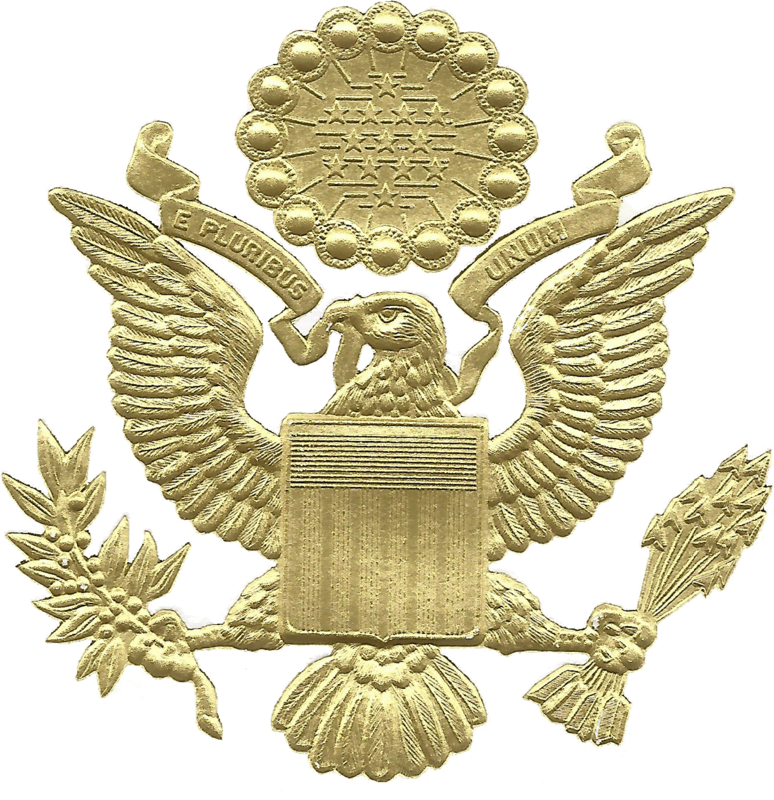LeadershipAdvisoryCouncil.com
"Leadership That Matters" Issues - Strategies - Solutions
COMMUNITY LEADERSHIP
ISSUES - STRATEGIES - SOLUTIONS
Seven Steps to Effective Community Leadership
How many times have you heard people at neighborhood bars, restaurants, or ball games complain about their community? How many times have you been a part of those moan-and-groan sessions?
Stop complaining and start making a difference. As the saying goes, if you're not part of the solution, you're part of the problem. Don't be a grumbler. Be a leader. Here are ten steps you should master on your way to being a respected and effective leader in YOUR community:
1. Make sure you are first a good citizen.
The key to good citizenship is loyalty. Do you respect the institutions of your community and country? In other words, do you just "mouth" the Pledge of Allegiance or do you live it? Does your life reflect that of a respectful, law-abiding, tax-paying, constructive citizen? Are you the kind of citizen that adds to society or takes away from it? In any organization, a good leader must first be a good example. It is no different with your nation, state, or municipality. So, obey the law, maintain a good attitude, register to vote, and be an example.
2. Know who your elected officials are - at each level of government.
Call your local Registrar and verify the political districts of your residence along with the elected official that serves each of those districts. For example, each state has two U.S. senators and a governor. Get their names, office numbers, and addresses. Find out what U.S. House of Representatives or congressional district do you live in? Get the district number and then the name and contact information for your U.S. Representative. Repeat this process for the state legislative districts you live in - you should have a state-level senator and a state-level representative or delegate. Then, go to your city or county level and finally, if you live in one, your town. Once you know your elected officials, the levels in which they serve (national, state, or local) and their contact information, you're ready to start contacting them - and influencing them.
3. Stay informed on the issues
Get to know the issues that your elected officials at their respective levels of government are facing. That means you must follow the news. In this Information Age, there is no excuse for being ignorant. For federal-level issues, you can listen to the radio during your commute to and from work, watch TV at night, read one of the major dailies each morning or at lunch, or read through any number of news websites. For state and local matters, you have your local papers, local radio stations, and plenty of information accessible over the Internet. Don't be an ignorant voter that's easily manipulated by bumper stickers and sound bytes. Be informed.
4. Stay in touch with your elected officials on the issues.
Write your officials, not just with complaints or requests. But compliment them when they vote the way you think they should. Look for opportunities to speak at public hearings. It's easy to get a chance to address your local School Board or county Board of Supervisors or Commissioners. It's easier than you think to do the same at the state level.
5. Periodically read the Declaration of Independence (especially the first paragraphs) along with other writings that inspire you and fuel your philosophy on life.
You should always remember why you believe in what you believe. As a citizen of the United States, you should know why we have a country to begin with. Read the document that started it all - the Declaration of Independence. Get in touch with how sacred the Founding Fathers considered the idea of popular consent and self-government. In addition, read books on faith and philosophy - things that help explain the world we're in. If you're a Christian, read the Bible daily. Always get to the foundation of what you believe and why. That will fuel your passion and make your a leader of purpose and conviction.
6. Master the framework of your government.
As the old saying goes, the "devil is in the details." When Lyndon Johnson first came to Congress, he became an effective leader very quickly, because he, among other things, mastered the intricacies of congressional rules and procedures. To be an effective leader, you must know the lay of the land better than your followers. For starters, this means understanding the nature of your government. That means, among other things, reading and studying the Constitution of the United States, which lays out the three-branch system of government we have at every level of our society. Then, study the laws of your state and locality. Go over the rules of your community group, homeowners association, and so forth. Learn parliamentary procedure. Be knowledgeable. As James Madison said, "Knowledge will forever govern ignorance."
7. Stick your neck out
Ultimately, a leader must lead. Once you've set a good example, learned who your officials are, opened a basic relationship with them as an informed constituent, and mastered both your belief system and the framework within which you're operating, it's time to get out there - and lead. By doing so, you will be the kind of leader everyone respects and many will follow. And you will look back on your successes later in life, knowing that you did your part.
10 Crucial Qualities of a leader
Who is a Leader?
A leader inspires and motivates others to achieve a common goal. Effective leader possesses a range of qualities that help them to guide and support their team, such as intelligence, integrity and courage. Influential leaders can plan strategically and make informed decisions based on market trends and customer needs.
One of the essential qualities of a leader is the ability to communicate effectively. This includes listening to others, expressing ideas clearly, and adapting to different communication styles.
The ability to adapt, think critically and solve problems are all qualities that an effective leader should possess. This includes being open to new ideas and approaches, which means being willing to pivot or change course when necessary. A good leader can also problem-solve and think critically, making decisions that are in the team's or organization's best interests.
In addition to these qualities, a good leader should be respectful, honest and ethical. This means treating others with respect and fairness and being transparent and accountable in their actions and decisions.
10 Crucial Qualities Of a Leader:
Being aware of the surroundings:
A great leader is aware of what's happening around them. This can mean that they are vigilant and aware of their environment, or it can mean that they are curious about world affairs and want to gain knowledge about global trends. Regardless, when a person is more equipped with knowledge about the world around them, it helps them make better decisions that aid their development and overall well-being.
Acceptance of failure:
"Those who dare to fail miserably can achieve greatly." - John F. Kennedy.
As much as we hate failing, they are inevitable. Failures make us feel small and unworthy. When we die, all of our successes are rendered meaningless, and that one failure has the most significance. At that time, some people fail to pick themselves up and continue their lives. They don't realizpe that life is not about that one failure. On the other hand, some people know better than to give up.
High self-confidence:
Great leaders can have confidence in themselves and their decisions. They understand themselves very well. They know their passions, objectives, likes, dislikes, and--most importantly--what they should do next, which gives them immense confidence. Confidence is a direct implication of thought clarity. The better thought clarity you have, the more confident you become.
An active listener:
A strong leader actively listens to others, not just to hear what they have to say and move on, but also to act on it and let people know that their opinions matter. A person becomes a good leader when they understand that each of us wants to be heard, valued, and accepted."
Has a vision for the future:
A great leader has a vision for the future, and they do not shy away from this fact. They understand that having an idea is crucial to succeeding in anything and everything they do. Strong leaders always have their eye on the prize, which helps them achieve many of their goals.
Great leaders constantly seek ways to improve themselves and their teams to accomplish even more than they thought possible regarding growth, development and improvement.
Has Clear Thoughts:
Clear thoughts enable you to make good decisions, solve problems, and act confidently. As a competent leader, you will be able to manage conflict, delegate effectively and inspire teammates - all critical skills for any successful business.
Curious about everything:
"Curiosity is the wick in the candle of learning."- William Arthur Ward.
A leader must be curious. Being intrigued and curious about everything they encounter has helped great personalities thrive and get to where they are today. A leader should be accepting, open to change and accept that our minds are constantly expanding and learning new things every day. This way, you grow as an individual and cultivate curiosity in your team members.
Disciplined:
"Great leaders always have self-discipline- without exception." - John C. Maxwell.
Discipline is one of the critical elements in becoming a successful leader, or person for that matter. A disciplined life allows you to develop into a better version of yourself by setting an example for others. Leaders and successful people can maintain this lifestyle because they are willing to make sacrifices when necessary, which only some can do.
Takes the initiative:
Many people have innovative ideas and wish to alter the world, but few can turn those words into action. Great leaders don't fear what others will say and act on their beliefs for the betterment of society.
High on Emotional Intelligence:
In today's highly competitive environment, where innovation and change are the keys to success, leaders must have emotional intelligence. It helps them identify the actual needs of their team and motivates and encourages them by acknowledging their strengths and weaknesses while providing feedback so they can grow along the way.
Empathy is the core of a strong team. Empathy is a powerful personal trait that allows leaders to create an open environment for their team members to put forward their opinions without hesitation and fear of judgement or repercussion. When a leader provides such a space, it fosters mutual trust, respect, and loyalty--all essential elements in developing high-performing teams.
Great leaders are not born; they are made. A team reflects its leader; if a leader is motivated, so will the rest of the group. This means leaders have to be accountable, fair, reliable, and someone who is there for the team members every step of the way to guide them practically as well as emotionally.
Leadership is a complex, multifaceted role that requires leaders to inspire and support their teams to achieve success. Many different qualities contribute towards this - leadership effectiveness is often dependent on the unique balance of these skills between two or more leaders.













